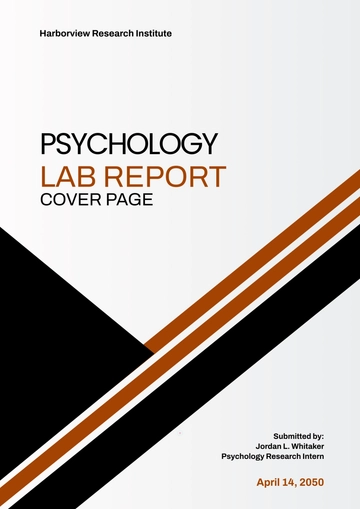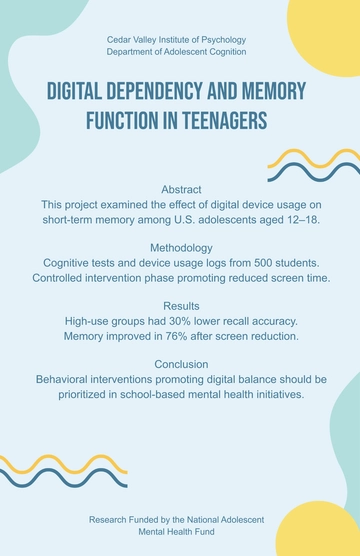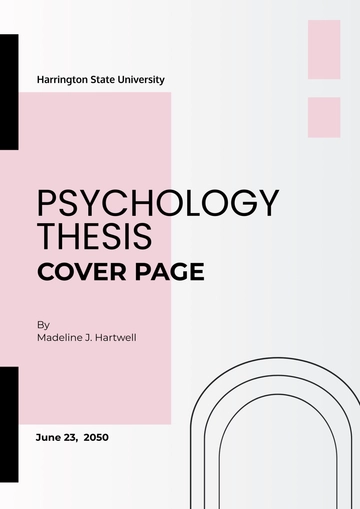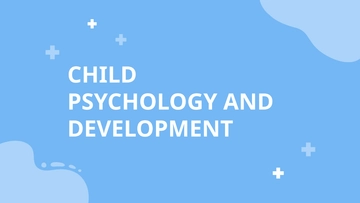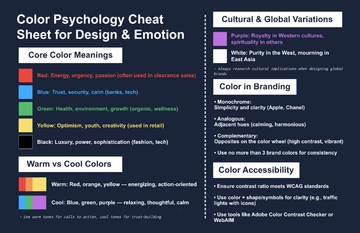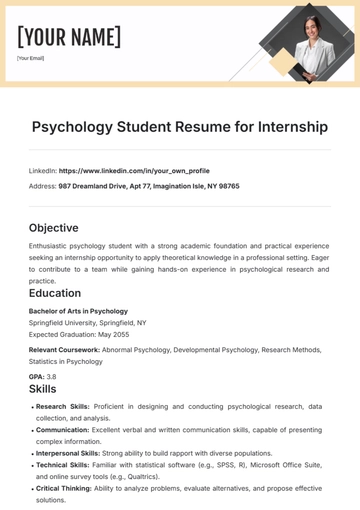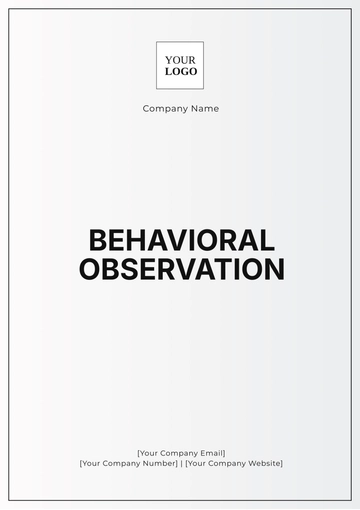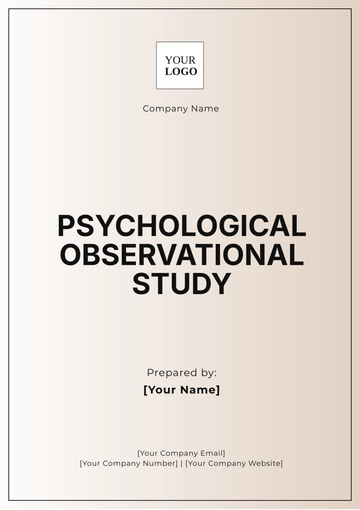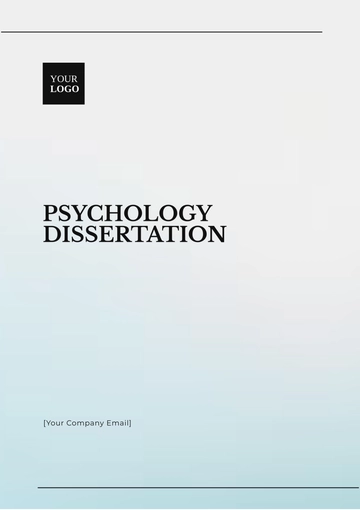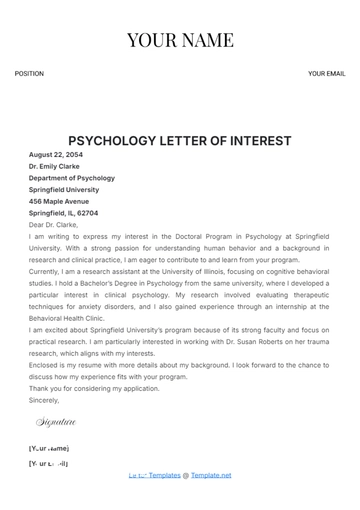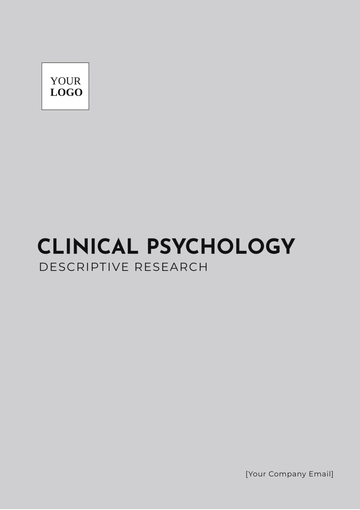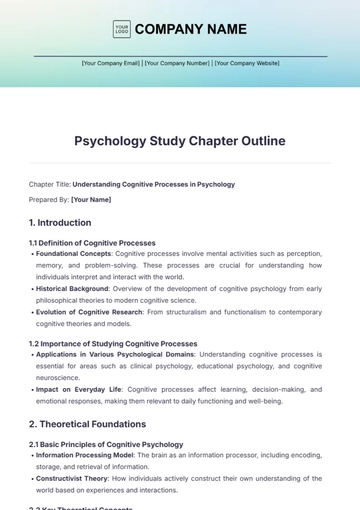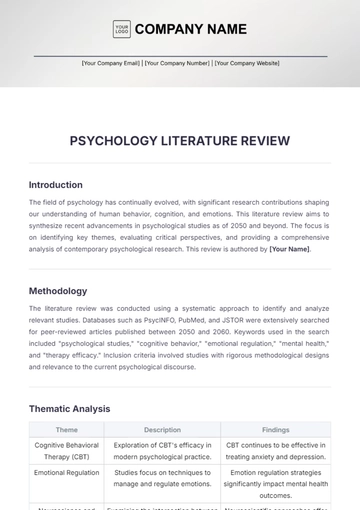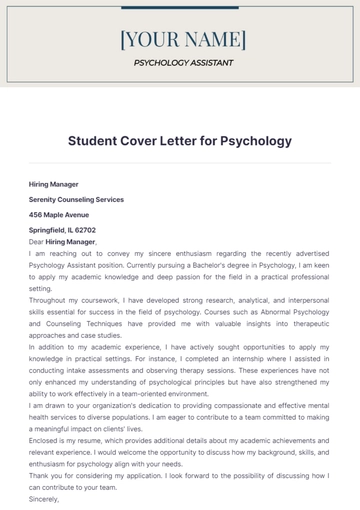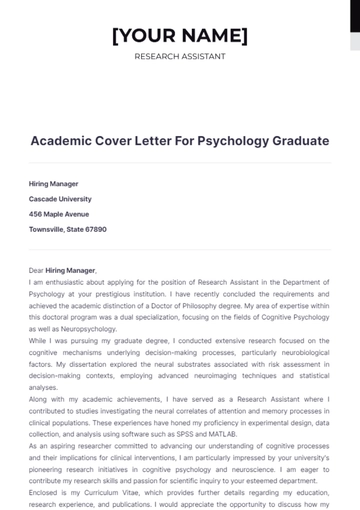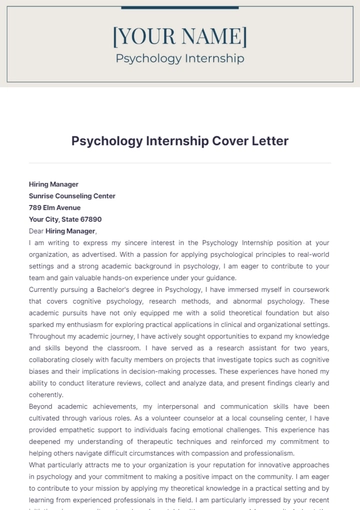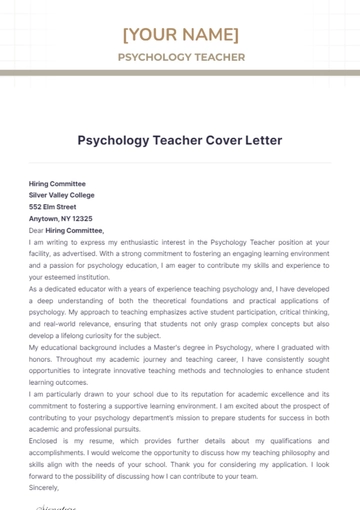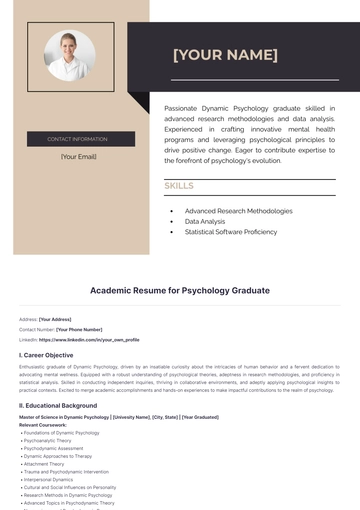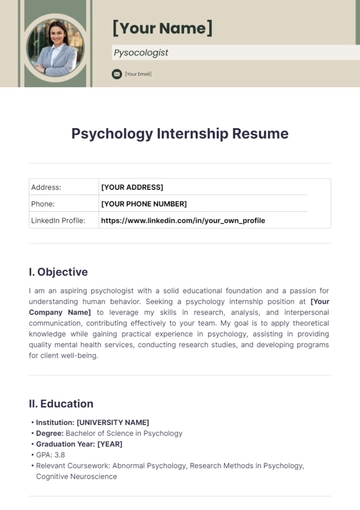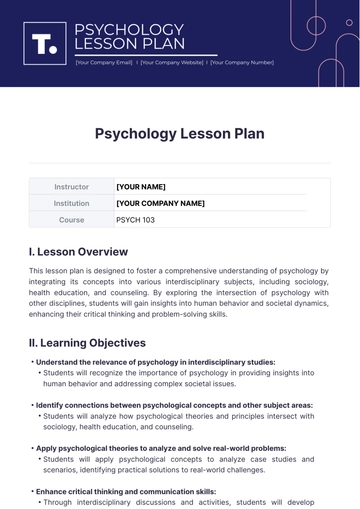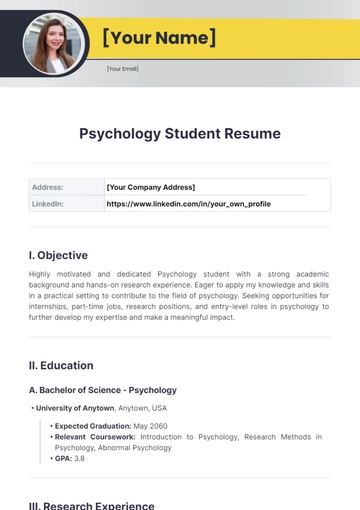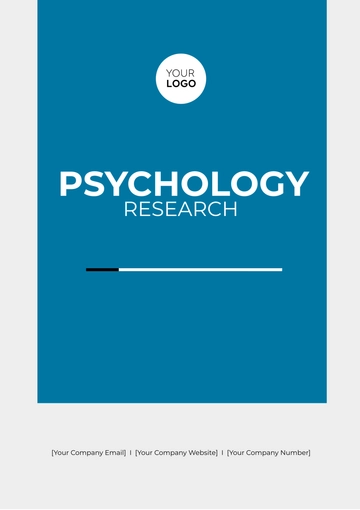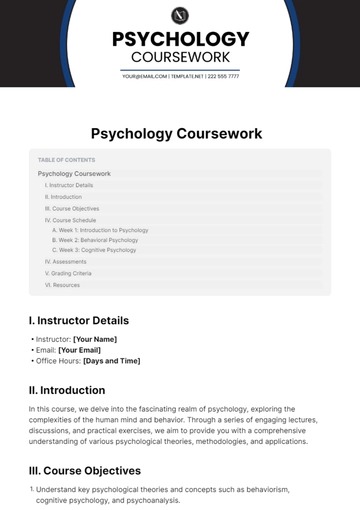Free Psychology Case Study
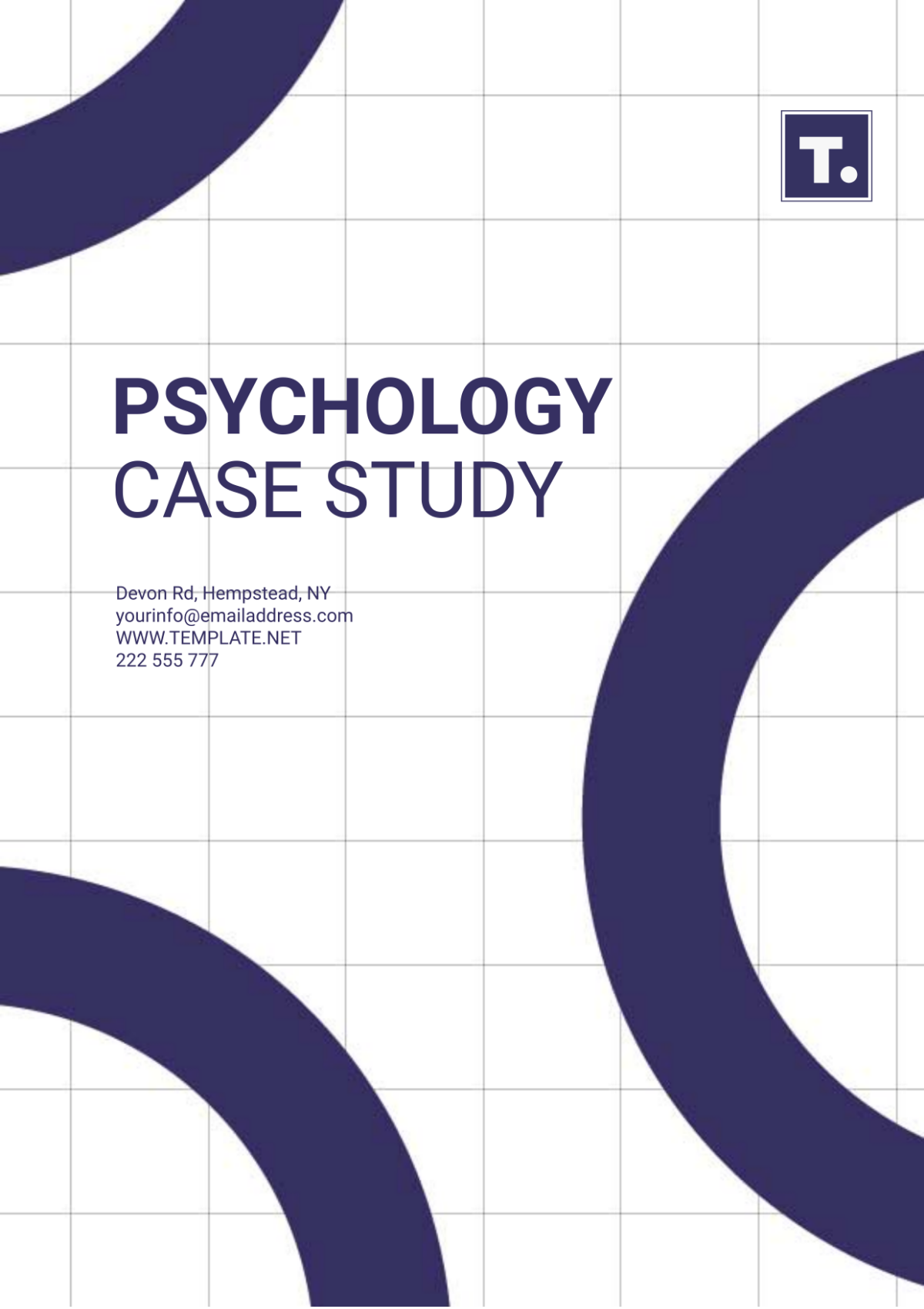
This case study was conducted by [YOUR NAME]. This is made under the organization, [YOUR COMPANY NAME]. This integrated approach aims to create a compelling narrative that enhances and embodies the brand's unique identity.
I. Introduction
In today's fast-paced society, the prevalence of mental health issues has become a significant concern. This case study delves into the complex interplay between psychological theories and real-world interventions in addressing mental health challenges. By examining a specific case scenario, we aim to shed light on the efficacy of various intervention strategies and their implications for understanding human behavior.
II. Background Information
Understanding the historical and contextual factors surrounding the subject is crucial for grasping the intricacies of their situation. For instance, exploring societal attitudes towards mental health, family dynamics, and any past traumas can provide valuable insights into the individual's current state.
III. Case Presentation
Meet Sarah, a 25-year-old graduate student experiencing symptoms of anxiety and depression. Sarah's academic pressures, combined with strained familial relationships, have led to a decline in her mental well-being. Despite her achievements, Sarah struggles with feelings of inadequacy and self-doubt, impacting her daily functioning and academic performance.
IV. Assessment & Application of Psych Theory
A. Cognitive-Behavioral Theory
The patient's negative thought patterns and self-defeating beliefs align with cognitive-behavioral theory, which posits that maladaptive thoughts contribute to emotional distress and behavioral dysfunction.
B. Attachment Theory
The patient's upbringing and familial dynamics may contribute to her current struggles, as attachment theory suggests that early caregiver relationships influence an individual's sense of security and self-worth.
V. Intervention Strategies
A. Cognitive Restructuring:
Through cognitive-behavioral therapy (CBT), Sarah learns to identify and challenge her negative thought patterns, replacing them with more realistic and adaptive beliefs. This intervention aims to alleviate Sarah's anxiety and improve her self-esteem.
B. Family Therapy:
Involving The patient's family in therapy sessions can address underlying relational issues and provide a supportive environment for her recovery. By fostering open communication and understanding, family therapy can strengthen Sarah's support system and enhance her coping mechanisms.
VI. Discussion
By implementing cognitive restructuring and family therapy, Sarah experiences significant improvements in her mental health and overall well-being. These interventions not only address her immediate symptoms but also equip her with valuable skills for managing future challenges. Furthermore, the application of psychological theories provides a comprehensive framework for understanding Sarah's behavior and tailoring interventions to her specific needs.
VII. Conclusion
In conclusion, this case study highlights the importance of integrating psychological theories with practical intervention strategies in addressing mental health issues. By adopting a holistic approach that considers individual backgrounds and contextual factors, professionals can effectively support individuals like Sarah in their journey toward recovery. Future research should continue to explore innovative interventions and their impact on diverse populations.
VIII. References
Beck, A. T. (2070). Cognitive therapy of depression. Guilford Press.
Bowlby, J. (2050). Attachment and loss: Retrospect and prospect. American Journal of Orthopsychiatry, 52(4), 664–678.
- 100% Customizable, free editor
- Access 1 Million+ Templates, photo’s & graphics
- Download or share as a template
- Click and replace photos, graphics, text, backgrounds
- Resize, crop, AI write & more
- Access advanced editor
Enhance and Discover the Psychology Case Study Template by Template.net! Craft compelling case studies effortlessly with this editable and customizable tool. Tailor your analysis to perfection with ease, utilizing our Ai Editor Tool for seamless edits. Elevate your presentations with professional precision and captivating detail. Unlock the potential of your case studies today.

